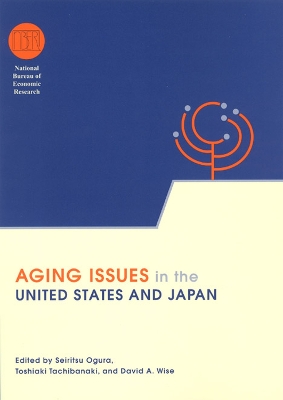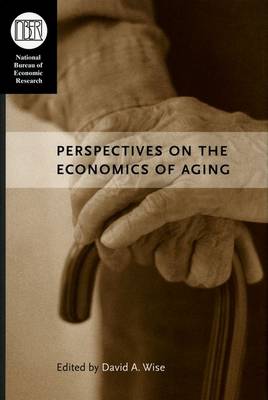National Bureau of Economic Research Conference Report
1 primary work • 4 total works
Book 2000
Aging Issues in the United States and Japan
by Seiritsu Ogura, Toshiaki Tachibanaki, and David Wise
Published 1 September 2001
The population base in both the United States and Japan is growing older and, as those populations age, they provoke heretofore unexamined economic consequences. This cutting-edge, comparative volume, the third in the joint series offered by the National Bureau of Economic Research and the Japan Center for Economic Research, explores those consequences, drawing specific attention to four key areas: incentives for early retirement; savings, wealth, and asset allocation over the life cycle; health care and health care reform; and population projections.
Given the undeniable global importance of the Japanese and U.S. economies, these innovative essays shed welcome new light on the complex correlations between aging and economic behavior. This insightful work not only deepens our understanding of the Japanese and American economic landscapes but, through careful examination of the comparative social and economic data, clarifies the complex relation between aging societies, public policies, and economic outcomes.
Given the undeniable global importance of the Japanese and U.S. economies, these innovative essays shed welcome new light on the complex correlations between aging and economic behavior. This insightful work not only deepens our understanding of the Japanese and American economic landscapes but, through careful examination of the comparative social and economic data, clarifies the complex relation between aging societies, public policies, and economic outcomes.
This book investigates several important issues in the economics of aging, including the accumulation of wealth and the relationship between health and financial prosperity. Examining the changes in savings behavior and investment priorities in the United States over the past few decades, contributors to the volume point to a dramatic shift from employer-managed, defined benefit pensions to employee-controlled retirement savings plans. Further, the legislative reforms of the 1980s and the booming stock market of the 1990s did their share to influence the individual wealth accumulation patterns of Americans. These papers also explore the relationship between health status and economic status, considering factors like pension income and health, mortality, and medical care. The findings are based on evidence from the United States, Britain, South Africa, and Russia. The volume culminates with wide-ranging discussions on a number of key issues in the field, including innovations and factors that have contributed to a decline in mortality rates, the various medical advances that have benefited different groups and populations over time, and the determinants of expenditures on health.
Labor Markets and Firm Benefit Policies in Japan and the United States
by Seiritsu Ogura, Toshiaki Tachibanaki, and David A. Wise
Published 8 October 2003
This volume, the fourth to result from a remarkably productive collaboration between the National Bureau of Economic Research and the Japan Center for Economic Research, presents a selection of thirteen high-caliber papers addressing issues in the employment practices, labor markets, and health, benefit, and pension policies of the United States and Japan.
After an opening chapter assessing the recent ascendance of the U.S. economy, papers diverge to tackle a range of specific issues. Focusing less on international comparison than on the assembly of high-quality research, contributors hone in on a variety of individual topics. Chapters delve into issues of youth employment, participatory employment, information sharing, fringe benefits, and drug coverage in Japan, as well as the dynamics of medical savings accounts, private insurance coverage, and benefit options in the U.S.
Like previous volumes stemming from NBER/JCER collaboration, this book represents a valuable mass of empirical data on some of the most notable employment and benefits issues in each nation, information that will both anchor and provoke scholarly analysis of these topics well into the future.
After an opening chapter assessing the recent ascendance of the U.S. economy, papers diverge to tackle a range of specific issues. Focusing less on international comparison than on the assembly of high-quality research, contributors hone in on a variety of individual topics. Chapters delve into issues of youth employment, participatory employment, information sharing, fringe benefits, and drug coverage in Japan, as well as the dynamics of medical savings accounts, private insurance coverage, and benefit options in the U.S.
Like previous volumes stemming from NBER/JCER collaboration, this book represents a valuable mass of empirical data on some of the most notable employment and benefits issues in each nation, information that will both anchor and provoke scholarly analysis of these topics well into the future.



